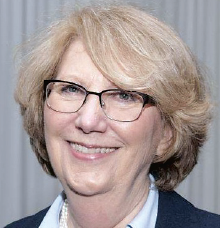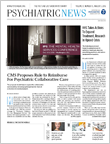Use of citalopram alone or in combination with psychotherapy for complicated grief may do little to help patients experiencing the persistent maladaptive thoughts, dysfunctional behaviors, and poorly regulated emotionality that characterize this chronic condition, according to findings published last month in JAMA Psychiatry. However, a combination of citalopram and complicated grief therapy (CGT) may lead to improvements in patients with complicated grief and co-occurring depression.
“Clinicians often attribute complicated grief symptoms to MDD and treat accordingly,” Katherine Shear, M.D., a professor of psychiatry at the Columbia University College of Physicians and Surgeons, told Psychiatric News. “But complicated grief, which was added to DSM-5 under the name of Persistent Complex Bereavement Disorder, is a distinct syndrome that causes considerable distress and impairment and needs targeted treatment.”
Shear told Psychiatric News that although it is common for patients with complicated grief to experience co-occurring depressive symptoms, the primary symptoms of complicated grief and response to treatment differ from that of major depressive disorder.
Shear and colleagues randomly assigned 395 bereaved adults who met criteria for complicated grief (defined as 30 points or higher on the Inventory of Complicated Grief) to one of four groups: citalopram only (CIT, median dose 40 mg for 12 weeks), placebo only, combined CGT and citalopram treatment, or CGT and placebo treatment. Follow-up assessments took place 4, 8, 12, 16, and 20 weeks after the first treatment visit and six months after study treatment termination.
The authors found that patients who received CGT with placebo showed greater improvements than those who received placebo alone (82.5 percent versus 54.8 percent). However, the addition of citalopram was not found to significantly improve CGT outcome (CGT with CIT versus CGT with placebo: 83.7 percent versus 82.5 percent). In contrast, depressive symptoms decreased significantly more when CIT was added to treatment (CGT with CIT versus CGT with placebo: Quick Inventory of Depressive Symptoms mean difference, -2.06).
“We were surprised that we did not see more of an effect with the antidepressant,” said Shear. “In contrast, response to targeted psychotherapy for complicated grief was substantial.”
Although most psychiatrists are aware of the immense impact that losing a loved one can have on a patient, Shear said greater efforts are needed to train clinicians on how to recognize and treat the symptoms of complicated grief.
This research was funded by the National Institute of Mental Health. ■
An abstract of “Optimizing Treatment of Complicated Grief” can be accessed
here.

